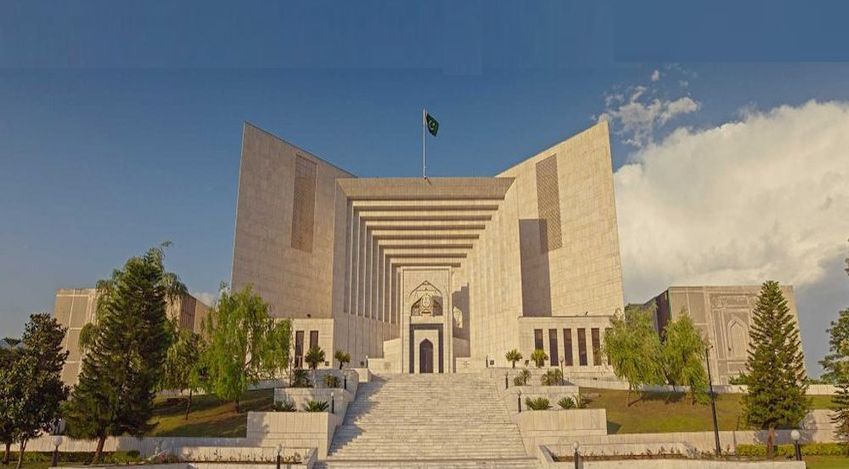Vehicles Exclusively used for Smuggling cannot be Released u/s 181 of the Customs Act, 1969 --- Supreme Court of Pakistan Upholds Confiscation of Vehicle
Islamabad 03-03-2025: The Supreme Court of Pakistan has upheld the outright confiscation of a vehicle used for smuggling foreign-origin betel nuts, ruling that vehicles exclusively used for smuggling are ineligible for release under Section 181 of the Customs Act, 1969.
A three-member bench comprising Mr. Justice Munib Akhtar, Mr. Justice Athar Minallah, and Mr. Justice Syed Hasan Azhar Rizvi dismissed the [Civil Petition No. 2330 of 2023], a driver, against the decision of the Peshawar High Court (PHC), which ruled in favor of the Directorate of Intelligence and Investigation (Customs), FBR, Peshawar.
The case originated when Customs authorities seized a Hino LPG Gas Bowzer on 04 June 2020, which was found transporting smuggled betel nuts instead of LPG gas. The vehicle and goods were initially detained under Section 17 of the Customs Act, 1969, and later seized under Sections 157 and 168.
The Adjudicating Officer passed an order of outright confiscation, citing SRO 499(I)/2009, which bars release options for vehicles used exclusively for smuggling. The Customs Appellate Tribunal later modified this decision, allowing the release of the vehicle under Section 181, subject to a fine. However, the Customs Department challenged this ruling before the Peshawar High Court, which overturned the Tribunal’s decision and reinstated the outright confiscation.
The Supreme Court of Pakistan addressed the following crucial legal questions:
- Whether a vehicle used for smuggling could be released under Section 181 of the Customs Act, 1969.
- Whether the petitioner, as a driver, had legal standing (locus standi) to challenge the confiscation.
- The impact of amendments to SRO 499 and Section 157 of the Customs Act.
The Supreme Court of Pakistan dismissed the petition, confirming that:
- Smuggled goods (foreign-origin betel nuts) were lawfully confiscated under Section 2(s) of the Customs Act, 1969.
- The vehicle was exclusively used for smuggling, making it ineligible for redemption under Section 181, as per SRO 499(I)/2009.
- The Tribunal had no jurisdiction to override FBR’s notification restricting release options.
- The driver (petitioner) lacked standing to appeal under Section 194-A, as the vehicle’s owner never contested the confiscation.
- The amendment to SRO 499 in 2024 did not affect this case, as the vehicle was already covered under Clause (b) of the original SRO.
The Supreme Court of Pakistan also ruled that the driver had no legal standing (locus standi) to contest the vehicle’s confiscation. Under Section 194-A of the Customs Act, 1969, only an aggrieved person (i.e., the owner of the vehicle) could appeal. The owner failed to appear before the Tribunal or challenge the confiscation.
Citing Director-General, Intelligence & Investigation-FBR Vs. Sher Andaz (2010 SCMR 1746), the Court reiterated that an “aggrieved person” must have a direct legal grievance, not merely a personal disappointment.
This ruling strengthens the enforcement of anti-smuggling laws and provides clear guidance on the jurisdiction of customs authorities, appellate tribunals, and the scope of judicial review. It reaffirms that vehicles exclusively used for smuggling cannot be released under Section 181 and restricts the right of appeal to legally entitled individuals.
The Supreme Court of Pakistan dismissed the petition, refusing leave to appeal, and upheld the Peshawar High Court’s decision, confirming the outright confiscation of the vehicle and goods.
Powered by Froala Editor








